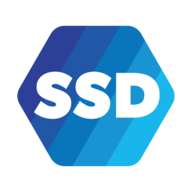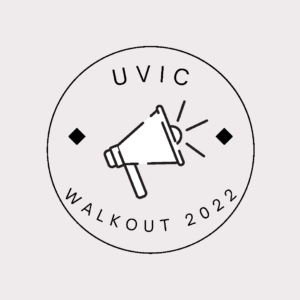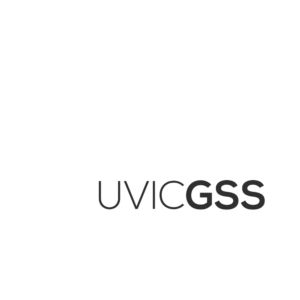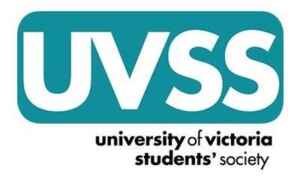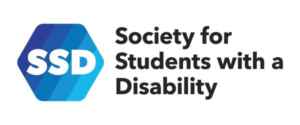Walkout 2022 Demands of UVic
“I need reassurance that I won’t be punished for getting sick in a situation which forces me to daily expose myself to illness. I need reassurance that my immunocompromised peers will receive equitable treatment during a literal pandemic.”
– Anonymous Respondent
February 16th, 2022
To the University of Victoria,
This statement is to inform you of a student-led walkout on February 16th, 2022, at 10:30am taking place at the Quad’s fountain.
The university is responsible for the safety of both students and staff on campus. We are centering on a collaborative harm-reduction approach to ensure our educational agency is prioritized. We are pro-in-person learning, pro-accessible learning materials, and against mandatory in-class attendance. We demand accessible learning options for students during the ongoing pandemic, and beyond into a post-pandemic world. We have started a survey to directly generate concerns from students since their return to class on January 24th; this survey asks whether or not they feel comfortable attending classes due to professors’ actions, and how the university can better support their learning. We have also asked if there are specific departments, classes, or professors that need intervention and we are happy to share those results with you at a follow-up meeting. As of February 13th, we have heard from 57 UVic students; they’re equally divided between preferring online or in-person learning.
Upon receiving this letter, the university will be granted two weeks to implement the following changes to adequately address the concerns of students on campus. In the case where our concerns are resolved, we will discontinue our action. If they are not adequately addressed, we will have follow-up demonstrations that will escalate in intensity. The university is encouraged to join us with our action and take our concerns to the provincial government. We expect it will take all of our voices for appropriate measures to be achieved.
Our main priority is for all students to be able to access course learning materials (lecture recordings, slides with vocal explanations, tutorials, labs, etc.) online during the pandemic AND as we move into a post-pandemic world. We want students to be able to choose if in-person instruction, online, or a hybrid version is what’s best for their educational journey on any particular day, week, or month of their degree. This flexibility will allow students to stay home when exhibiting symptoms of illness, or when feeling uncomfortable or unsafe in the classroom. This will ultimately be an improvement for both the mental and physical health of students and faculty. As it currently rests, several cohorts of students are required to attend in-person classroom experiences, like labs and tutorials, without the flexibility to accommodate for extended absences. Those students who are unable to fulfill that in-person component are forced to drop the class, further extending their academic careers and making it impossible for certain students to access these educational avenues. This inaccessibility disproportionately affects marginalized groups, such as disabled, BIPOC, and queer students.
We do not believe this is what the University of Victoria stands for, and we implore you to commit to all students’ educational wellbeing while on campus. We believe the university is committed to reducing barriers to education, and we hope we can rely on this moving forward together.
“As a staff person, I share similar concerns to the students and would like us all to have total flexibility in our options.” – Anonymous Respondent
We understand these changes cost money, and that the university may not be able to access the funding they require on their own. For this reason, our second demand is that the University of Victoria join the Society for Students with a Disability’s ongoing campaign, #Access4All. Reverting solely to in-person delivery of classes is an active dismantling of equitable education – notably, students with disabilities and mental health conditions, mature and immunocompromised students, and those who have at-home dependents, work alongside their studies, or who are unable to afford rent in Victoria are disproportionately impacted by a mandatory return to in-person classes; without recorded lectures, online course options, and other similar access points for at-home learning, these demographics are disproportionately affected by a full return to in-person classes. Together, we can advocate for provincial funding to shape British Columbia’s post-secondary institutions into the ideal standard for equitable education. We have several ideas to help mitigate concerns of copyright infringement and intellectual property being circulated without explicit consent from instructors. We will explore these suggestions further in this letter.
Furthermore, we do not accept professors deducting marks based on in-class attendance or participation during a pandemic. This practice not only forces students to question whether their symptoms are weak enough to attend, but it also ensures students and faculty are sharing classrooms with those experiencing symptoms. Students are committed to their education and do not want to make daily choices between their education and their safety. We want to support the best learning outcomes for students by not incorporating marks based on in-person attendance. This should be extended to all students, whether or not they have accommodations through CAL; we also request that this be done without the explicit support of a medical note. Throughout this pandemic, students have not needed to provide medical notes to professors to miss exams. We propose that we keep this model and continue to trust students when they say they are unable to attend class without the authorization of a medical professional.
Our survey shows that many students are uncomfortable when professors take their masks off to teach in classrooms. Some students report that the professors come within 6ft of the front row of desks without their masks on. In the classrooms we’ve experienced, the professor stands at the front of the class and asks ‘permission’ to remove their mask – this is usually met with inaudible murmurs and doesn’t encompass a consensual environment. We are requesting that if professors want to take their masks off to lecture, they must first obtain unanimous consent from all classroom attendants through an anonymous online form.
Our survey also highlights that many professors are not prepared for students to fall ill or not be able to attend classes for extended periods of time. As a result, students are falling behind in course materials and are not able to make up for the lost time. We request that the university formally ensure all professors have a strategy prepared for when students do not attend – this can look like recording and posting lectures online, or preparing short lecture note blurbs that can be circulated to those students not in attendance. Of course, we do not expect professors to know which students aren’t attending. That responsibility does fall on the student – to ensure their instructors can provide adequate support, each student who must miss class would provide a declaration so their instructor is aware.
“Provide complete material or live stream so we don’t have to decide whether to come in ill or miss crucial material” – Anonymous Respondent
We have heard a lot of professors are uncomfortable or unable to post their lectures online for a variety of reasons. We would like to suggest some possible solutions, and to ease the minds of professors that students do not want to debase anyone, and simply want access to their class content. However, if professors feel more comfortable, they can request students complete an integrity statement at the beginning of the year that ensures that no materials will be used outside of their intended purposes, and explicitly bans circulating materials online to non-students. We considered that in the case of a professor being unable to record themselves in class, perhaps a team of students or a TA could be hired to record the lecture and the university can control which devices have copies of this material. These materials may also be destroyed at the end of the term, or made available over streaming only, on Brightspace. Another solution may be for professors to provide an auditory voice-over on top of posted presentation lectures so that students can hear the robust discussions and implications of each slide. We want professors to be in charge of their intellectual property, and don’t want to see it circulated online any more than they do. We want to find a solution that mitigates copyright infringement concerns.
We would like the university to make a statement that acknowledges and appreciates all its staff, students, and affiliates for continuing to choose UVic as its institution through these unprecedented times. This has been one of the most collectively stressful periods in the university’s history, and we would like to know that we are valued and appreciated for the work and choices we make to call this place our own. A statement would be the first step toward this, and working closely with the #Access4All campaign would be ideal.
“…at the very least feeling like they actually care about my well being” – Anonymous Respondent
Students also want a consistent minimum mask requirement of 3-layer masks on-campus. The university can assist by providing increased access to 3-layer masks around campus at strategic locations. Currently, there are a number of ambassadors providing medical masks – we would like to see more ambassadors offering these masks to more students on campus. Many students and staff are still wearing their cloth masks from 2020, and as stated by the PHO, these masks need to be replaced as their efficacy has dropped significantly through their numerous washings and days of use. Perhaps circulating the KN95 masks in different locations or departments would be helpful as well to ensure they’re distributed within the student body.
Another demand of ours is to move all exams and evaluations online unless it is feasible to socially distance in person (at minimum one empty seat between each student). Many professors have already made this change because they recognize that not all of their students attend lectures, but they expect almost all of their students to show up on exam day. This means that rooms are packed to capacity, allowing no room for social distancing. This is making students uncomfortable and unable to concentrate on the testing at hand. A classroom filled with students has never been more of a distraction, and we want to eliminate discomfort in these settings by moving the bulk of assessments to online platforms.
“My classrooms in Clearihue and Cornett have been too crowded to allow social distancing and had no ventilation besides a window on one end.” – Anonymous Respondent
We want to state that we acknowledge that teaching professionals and their teams require appropriate compensation for offering their courses, assessments, and materials hybridly. We want to work with the university directly to call on the PHO to recommend remote learning options. This is a change that will help students beyond the pandemic, and will make learning more accessible and equitable for all students in British Columbia. We also do not want sessional professors to be penalized for offering their courses online, as this once again forces symptomatic students into classrooms, putting staff and students at undue risk of exposure.
These demands didn’t arise in isolation. Over the past 10 months, #Access4All committee members have met with local MLA’s, Parliamentary Secretary Dan Coulter, the UVic Executive, and continue to participate in the revision and renewal of policy AC1205, which is the policy outlining academic accommodations at UVic. These efforts have not resulted in any tangible or meaningful actions that address access barriers at UVic, despite clear and consistent asks on the part of Disabled students for specific changes. We want to work together to ensure we can build equitable educational opportunities for all students.
Other universities are having similar struggles. On January 24th, students at Simon Fraser University walked out calling for similar changes. An alliance of ten student unions across BC have implored the PHO and minister to recommend remote learning options. We expect many students are feeling the effects of moving into a post-pandemic world while the threat of illness is still present. We want to reiterate that we are not against in-person learning, but rather we want to build an equitable future for all students and want individuals to be able to control their educational agency.
.
Thank you for your consideration. We look forward to working with you to ensure we are moving towards a more equitable and socially just future for this university.
Best Regards,
GRADUATE STUDENT SOCIETY (GSS)
UNIVERSITY OF VICTORIA STUDENT SOCIETY (UVSS)
STUDENTS WITH A DISABILITY (SSD)
